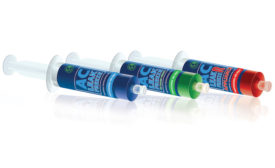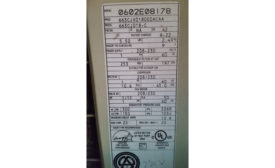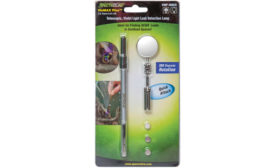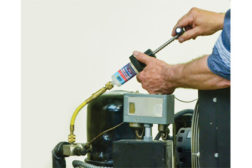Home » refrigerant leaks
Articles Tagged with ''refrigerant leaks''
Settlement announced by U.S. Environmental Protection Agency and U.S. Department of Justice
Read More
Ice Breaker: When in Doubt, Don’t Just Change It Out
Techs must seek to prove their diagnosis, not randomly swap out parts
Read More
DiversiTech Acquires Cliplight Manufacturing
Expanded product line, including Super Seal™ brand, will aid HVAC contractors
January 25, 2016
RectorSeal Acquires AC Leak Freeze Refrigeration Sealant Product Line
Acquisition supplements RectorSeal’s product line and complements its refrigerant service product category
January 4, 2016
Do You Use Refrigerant Leak-Stop Additives?
Are they an effective long-term solution, or a temporary quick fix?
Read More
Heated Diode Refrigerant Leak Detector
LED probe light illuminates dark job sites
June 29, 2015
Copyright ©2024. All Rights Reserved BNP Media.
Design, CMS, Hosting & Web Development :: ePublishing











